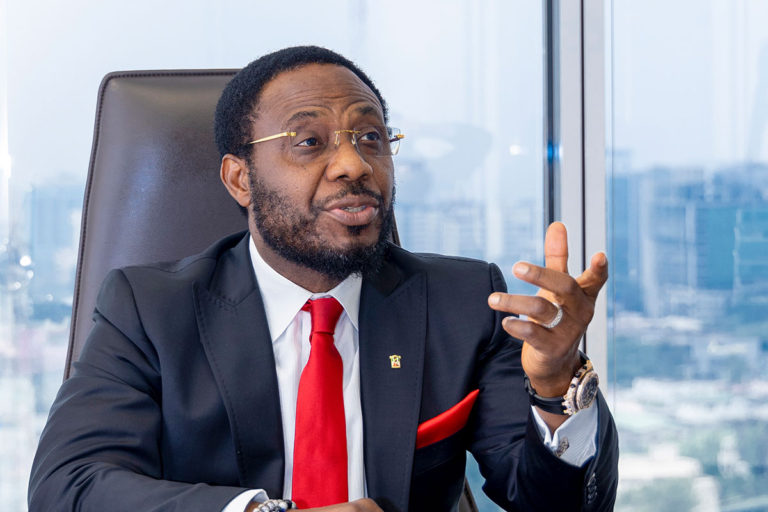The enactment of the Nigerian Oil and Gas Industry Content Development, known as the Local Content Act in 2010 to promote indigenous participation in Nigeria’s oil and gas industry, and improve the economic and social wellbeing of the players in the oil and gas industry, was initially met with skepticism due to the perceived unclear mode of operation according to some industry experts.
The local content act, a laudable initiative for local players looking to find their feet in the sector, as it inculcates provisions for the development, supervision, coordination, monitoring, and implementation of Nigerian content plan in the oil and gas milieu, was thought to be wishful thinking, but years later, it has proven to be the turning point for the full participation of local entities in the sector.
This has led to the rise of so many indigenous oil companies across the value chain with the capacity to replicate the tasks carried out by the International Oil Companies (IOCs).
Among the companies that embraced the act as what was needed to rev their activities was the Nestoil Group, now the largest indigenous Engineering, Procurement, Construction & Commissioning (EPCC) service provider for IOCs in Nigeria & Sub-Saharan Africa.
Coincidentally, the indigenous oil and gas company which has now been around for three decades since its formation in 1991 and is reputed for creating exceptional value has been a champion of local content at a time when the government had not enacted the local content law.
Its activities and that of its subsidiaries like IMPAC, B&Q Dredging, Energy Works Technologies (EWT), Hammakopp Consortium, Scorpio Drilling, Neconde Energy, White Dove Shipping Company Limited, Nesthak, Shipside Drydock, and Century Power Generation Limited – is widely lauded in the energy ecosystem due to the extra efforts it commits to executing contracts for local and international partners.
The company has remained at the cutting edge of the energy revolution in Nigeria through its inclusion of technology into the process, part of which is its conceptualization of the Alternative Evacuation System (AES). This is a means to reduce oil loss due to system shutdowns and crude thefts.
This is what Nestoil leveraged on, in its 30 years of operation with its over 3000 employees and has continued to redefine industry standards in pipeline construction, repairs, and maintenance with associate facilities in fabrication, dredging, engineering, design, operations and maintenance engineering, civil engineering, river crossing, and shoreline protection.
The company’s repair and maintenance facilities are built with the highest Health, Safety, and Environment Standards ensuring a safe working condition. The company’s operational strategy delivers competitive prices, short lead times, high-quality workmanship, and overall reliability in the service to the clients.
Over 95 percent of its employees are Nigerians which makes Nestoil local content personified among the players in the sector, and it is also a foremost employer of local labour across the value chain of the oil and gas sector.
Like a maxim that says, ‘Do not despise the day of little beginnings’, it is inspiring to know that Nestoil started as a trading business with its company in Idumagbo Lagos Island, but as it continues to expand, it continues to move office till its current headquarters, Nestoil Towers on Akin Adesola Street, Victoria Island.
According to Dr. Ernest Azudialu-Obiejesi, Nestoil Group Chairman, “when we started understanding the business, it took five years of presenting, spending money trying to convince the IOCs that a Nigerian company can afford to do this business.”
It is no gainsaying that Nestoil, over the years had passed through turbulent times and daunting challenges but has raised its head above the waters. For an indigenous company to deep its feet into the murky waters of the oil and gas sector when it was populated by the IOCs, it was certainly not a mean feat.
Nestoil prides itself as the “King of the Swamp” with its involvement in many difficult projects in the Niger Delta terrain. It is about to complete its lot in the OB3 gas pipelines, which has witnessed various setbacks, for the Nigerian government.
This pipeline system is a critical component of the Nigeria Gas Master Plan (NGMP) meant to deliver gas from the rich reservoirs in the eastern Niger Delta to the established markets in the west of Nigeria. Part of its scope is the construction of the OB3 pipeline under the bed of the River Niger, which is over two kilometers span. This feat has never been done anywhere in Africa.
Its sister company, B&Q Dredging Limited is also working on the second Niger Bridge construction, a major socio-economic highway that is of high impact and value to Nigerians.
B & Q Dredging limited, established in 1996 provides a range of dredging solutions using its highly experienced and motivated multinational workforce to meet global operating standards.
Its services range from dredging services, reclamation, sand filling, and road embankments toward erosion control, shore protection and consolidation. This places the company as the foremost indigenous dredging service provider.
The successful completion of Shell’s mammoth 97-kilometer NCTL pipeline in 2010, delivered a month before schedule, turned out to be the icebreaker for B&Q Dredging as that led to the opening of doors to more indigenous companies.
Its level of success today can be tied to the determination of its founder, Azudialu–Obiejesi, to have business entities that would be wholly Nigerian.
With local content in full swing, there is the fear of local operators not having the capacity to deliver on huge impactful projects. This is the lacuna that Azudialu-Obiejesi was able to fill when he established the company and why he recruits Nigerians with the capacity to develop their country with their skills and expertise.
The dearth in the acquisition of modern dredging technology, expertise in environmental dredging, dredger crew training, pre-and-post surveying, safety and security, and industry regulation are some of the challenges that face dredging companies in the country. These are areas the management of B & Q have successfully tackled.
In recognition of its capabilities in the industry value chain, three of the group’s companies, Nestoil, EWT, and B&Q were in 2017 identified by the London Stock Exchange out of 300 African companies as companies with a great future for the continent – companies to lead Africa in the next 10 years.
Notably, Nestoil, through its engineering and construction arms, has delivered services to a good number of organizations according to global best practices and that has earned it numerous product and management certifications. It has the ISO-9001/2015 certification and has also moved from ISO-2008 to 2015.
This is why players in the oil & gas sector rever the acumen of Azudialu-Obiejesi and why its 30 years in operation is a big occasion that should be widely celebrated by all that has the interest of the local oil sector at heart. The next 30 years will surely be more interesting as the company is set to proffer more workable solutions to the economic development of the country.






